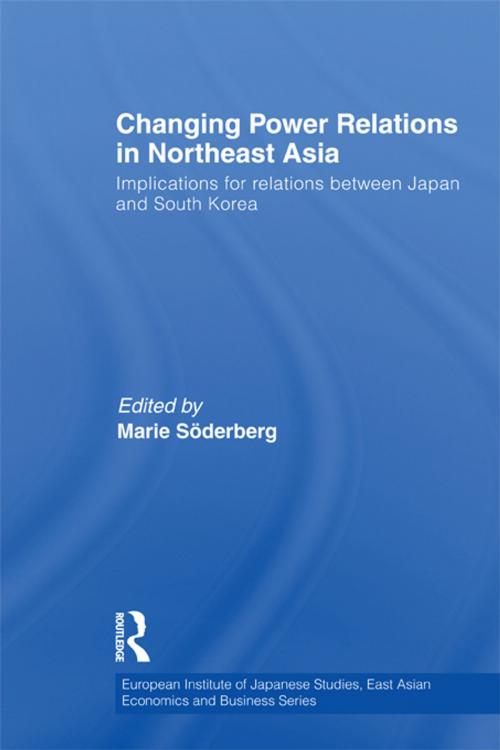Changing Power Relations in Northeast Asia
Implications for Relations between Japan and South Korea
Nonfiction, Social & Cultural Studies, Social Science, Cultural Studies, Ethnic Studies, Political Science, International, International Relations| Author: | ISBN: | 9781136843297 | |
| Publisher: | Taylor and Francis | Publication: | March 7, 2011 |
| Imprint: | Routledge | Language: | English |
| Author: | |
| ISBN: | 9781136843297 |
| Publisher: | Taylor and Francis |
| Publication: | March 7, 2011 |
| Imprint: | Routledge |
| Language: | English |
This book analyses the Japanese-South Korean relationship from various angles including politics, security, economics, culture and immigration. In a sense the two countries are natural partners. Both are democratic societies, they are economically strong and are the only two Asian countries that are members of the OECD. Both have security treaties with the USA, they share security concerns when it comes to the North Korean nuclear threat as well as the rise of China, which at the same time has become the largest trading partner for both. Japan and South Korea also share similar values, customs, cultures and languages. All this would make it logical for them to have a strong cooperative bilateral relationship. Yet this is still not the case. The contributors to this book examine how the relationship is affected by the changing power relations in Northeast Asia and find a most complex situation.
Understanding how Japan and Korea interact is central for anyone that wants to understand the politics of East Asia. This volume will be of huge interest to students and scholars of Asian politics, as well as those interested in political science and peace and conflict resolution more generally.
Marie Söderberg is Professor and Director of the European Institute of Japanese Studies, Sweden.
This book analyses the Japanese-South Korean relationship from various angles including politics, security, economics, culture and immigration. In a sense the two countries are natural partners. Both are democratic societies, they are economically strong and are the only two Asian countries that are members of the OECD. Both have security treaties with the USA, they share security concerns when it comes to the North Korean nuclear threat as well as the rise of China, which at the same time has become the largest trading partner for both. Japan and South Korea also share similar values, customs, cultures and languages. All this would make it logical for them to have a strong cooperative bilateral relationship. Yet this is still not the case. The contributors to this book examine how the relationship is affected by the changing power relations in Northeast Asia and find a most complex situation.
Understanding how Japan and Korea interact is central for anyone that wants to understand the politics of East Asia. This volume will be of huge interest to students and scholars of Asian politics, as well as those interested in political science and peace and conflict resolution more generally.
Marie Söderberg is Professor and Director of the European Institute of Japanese Studies, Sweden.















